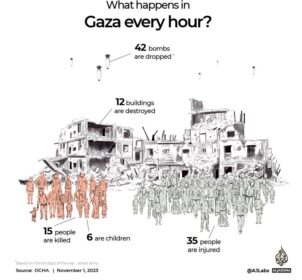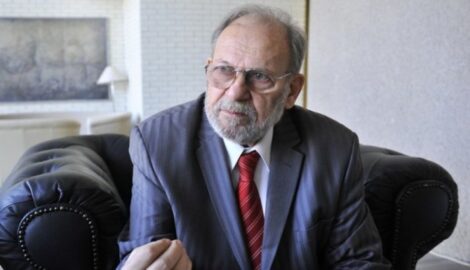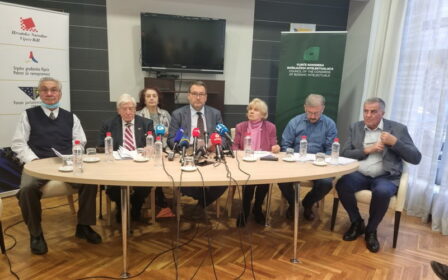Clinton Global Initiative University Aims to Answer ‘How’ Question

Former President Bill Clinton, Chelsea Clinton and Washington University Chancellor Mark S. Wrighton addressed the crowd Friday in the opening session.
Friday night 1,200 students from 75 countries, 50 states and 300-plus universities were challenged to solve the world’s problems with small-step solutions by answering one question: how.
Chelsea Clinton told the Clinton Global Initiative University (CGI U) students gathered at Washington University that they were tasked with helping solve the urgent challenges of the 21st century.
“We need to help reorient the conversation around all of our urgent challenges,” she said. “What needs to happen and what do we do to make that happen? How do we ensure that the how is at the center of every conversation?”
To facilitate the how, President Bill Clinton told the students that $500,000 in funding would be awarded over the weekend to fund some of the commitments the students were creating.
“And I’m going to continue to work on it until every commitment gets decent funding,” he said.
The first session of the weekend featured President Clinton moderating a discussion between Twitter co-founder Jack Dorsey, fashion designer Kenneth Cole, Women for Women International co-founder Zainab Salbi and author/inventor William Kamkwamba. Kamkwamba wrote The Boy Who Harnessed the Wind.
The panel featured questions from President Clinton as well as audience questions asked via Twitter.
Clinton asked the panelists to tell the CGI U students how they decided what their dream was going to be.
Kamkwama, of Malawi, said he was inspired to build his windmill to help farmers in his country after reading a book.
“I saw that picture and knew that this existed somewhere else, and nothing was going to stop me from doing the same thing,” he said.
Saibi, an Iraqi immigrant, was inspired to start Women for Women in 1993 after coming to the United States and learning of concentration camps in Bosnia.
“When I got here, Iread for the first time about the Holocaust,” she said. “Then I learned of the concentration camps in Bosnia. We said never again and there it was, happening again.”
Women for Women began by connecting female survivors of war with a western counterpart. The women exchange letters and a $30 monthly donation to help the women in war-ravaged countries get back on their feet.
Cole spoke of how he felt he had to speak up and work for AIDS research when no one else would in the 1980s. He has a long history with AmFAR.
Dorsey told the crowd Twitter grew out of his curiosity and love of maps, which he acquired growing up in St. Louis.
“The biggest pushback we received was ‘why would anyone use this’,” Dorsey told the crowd. “No one needs this. Who needs to know what I ate for breakfast? There is one person that does care and that’s my mother—she cares that I’m eating, that I’m alive.”
“It speaks to the power of the receiver,” Dorsey said.
Source: universitycity.patch.com / Maggie Rotermund



